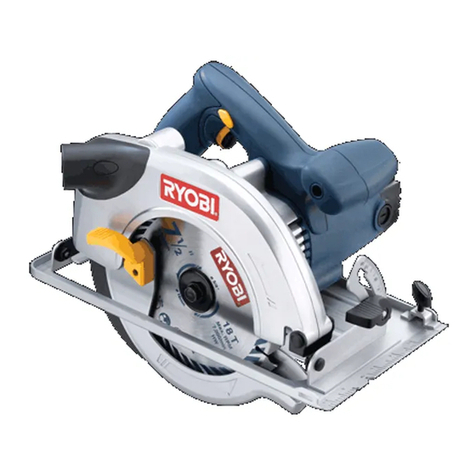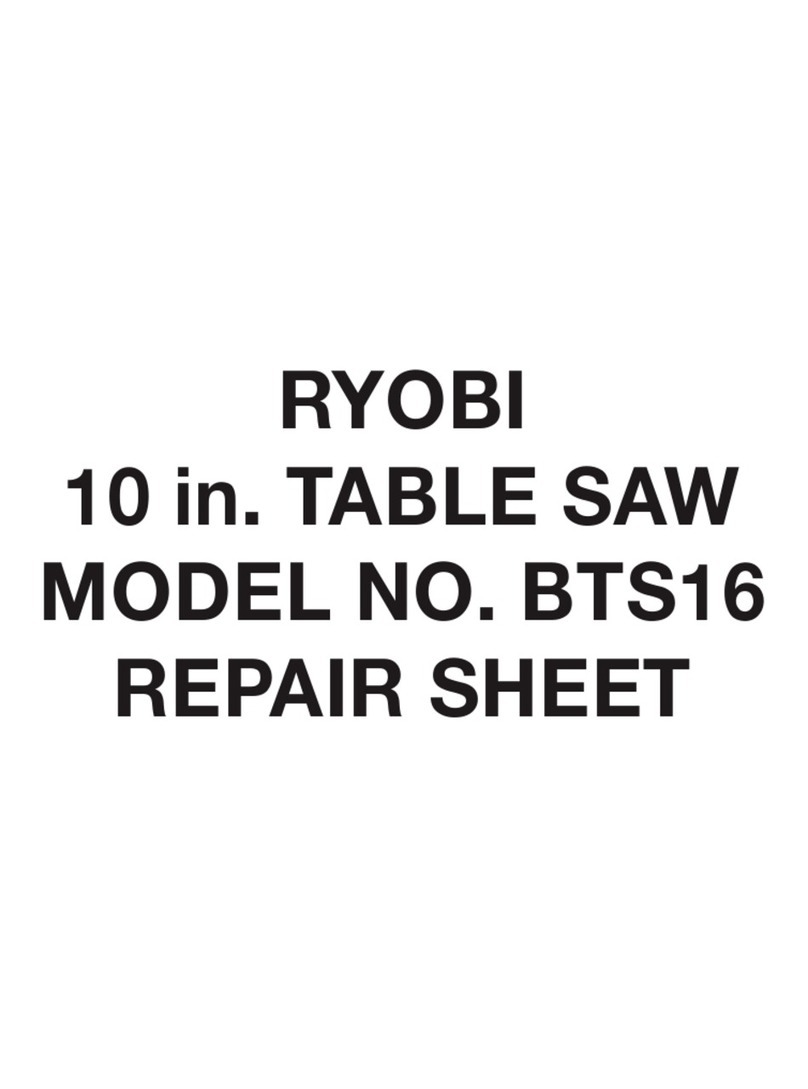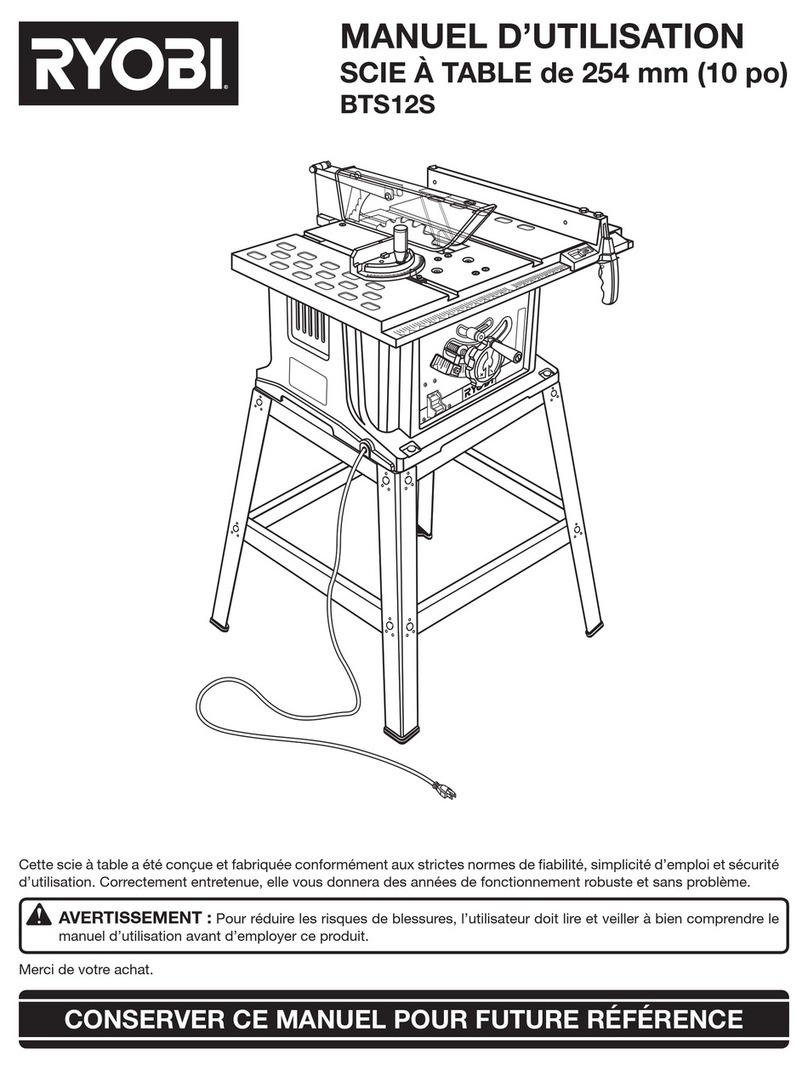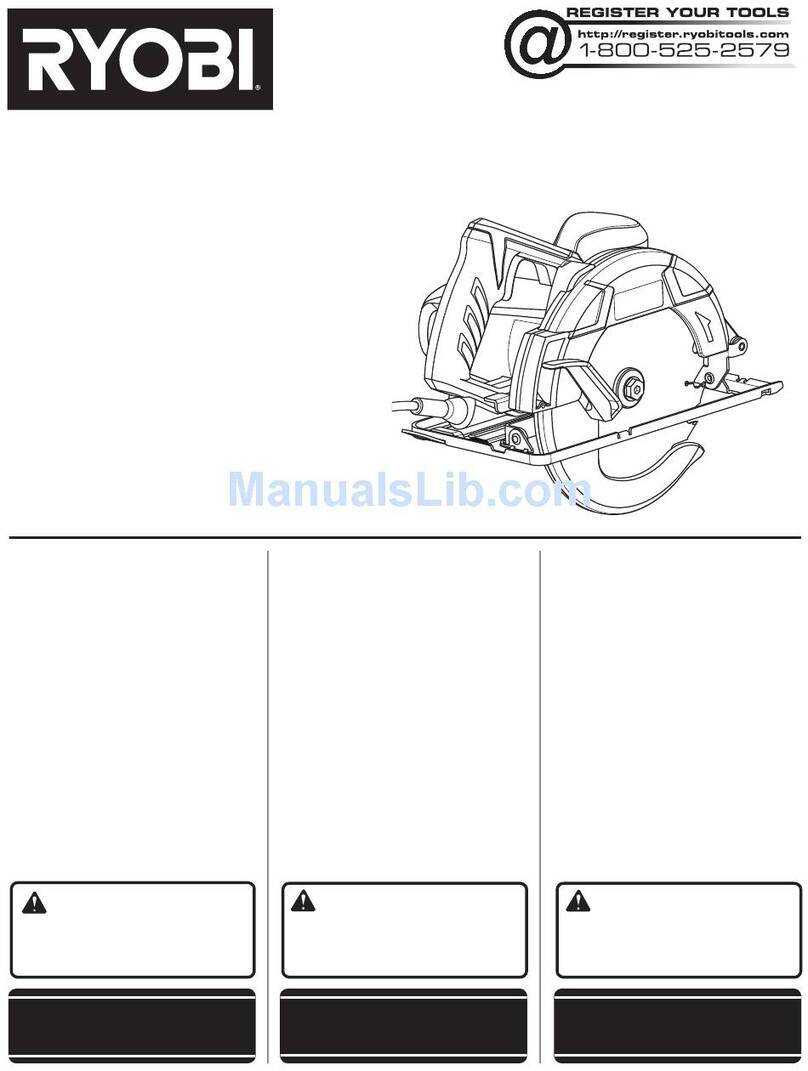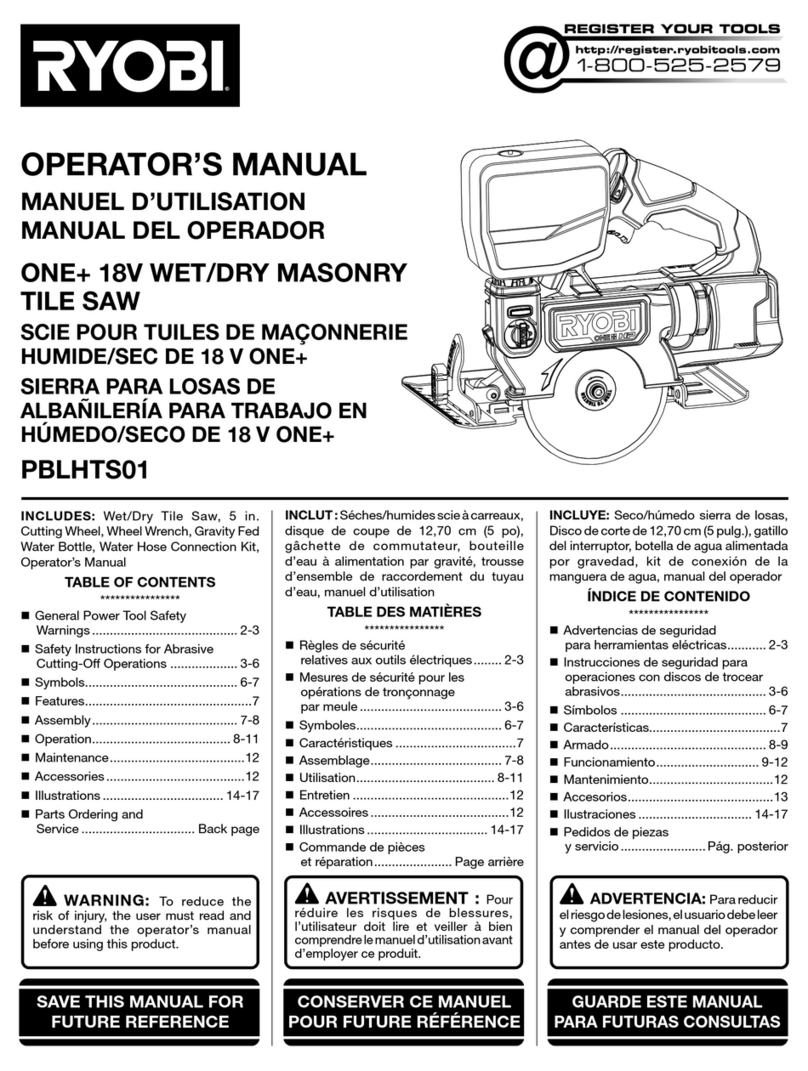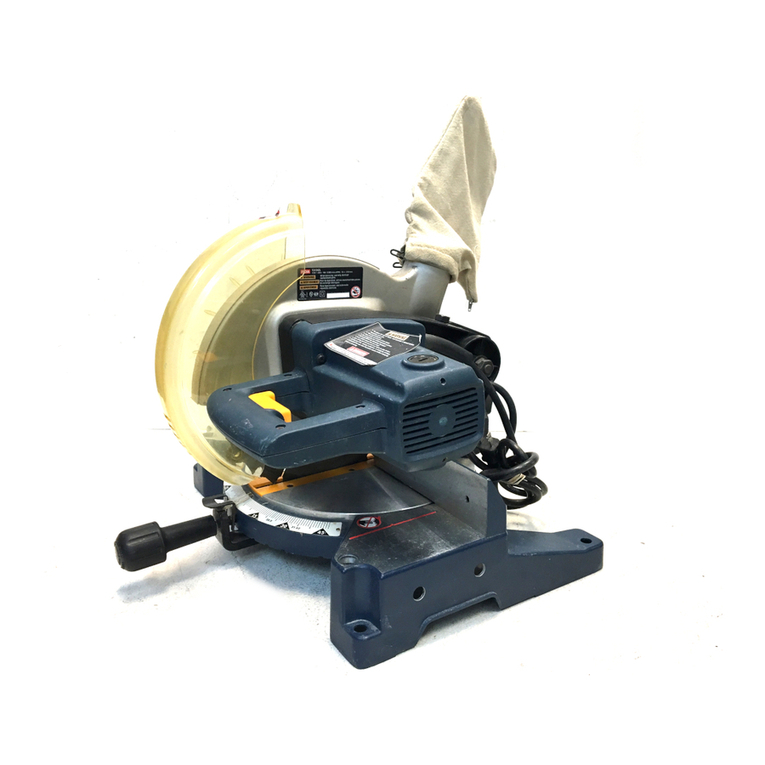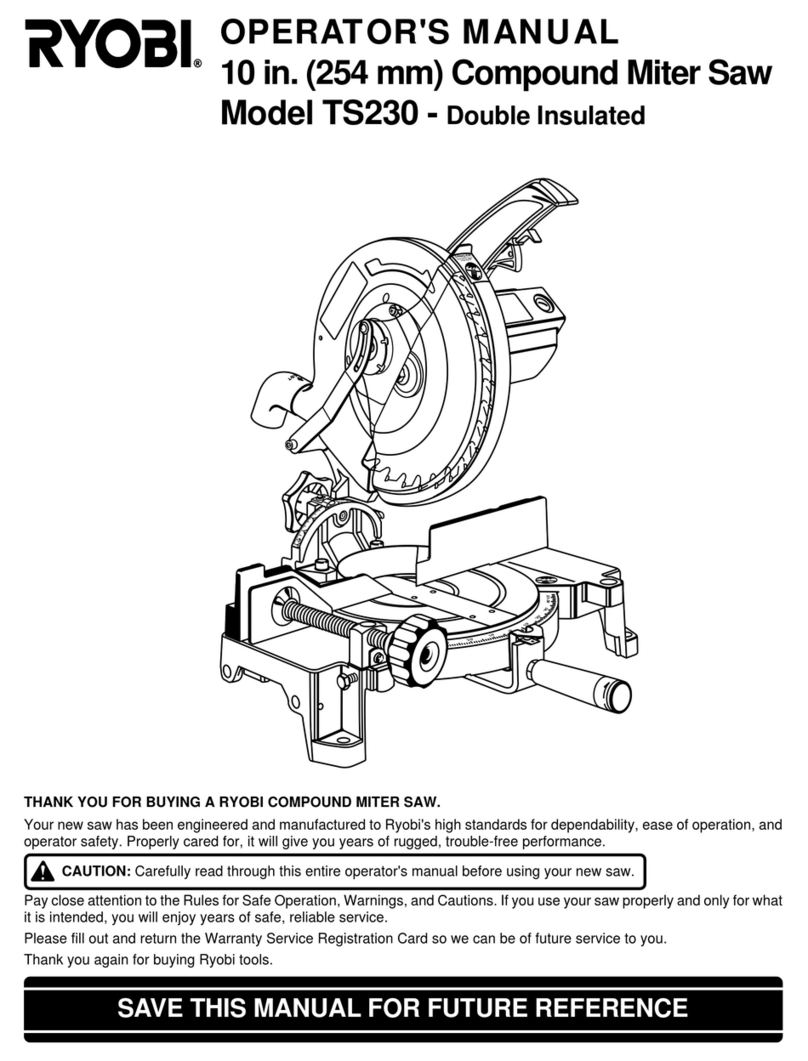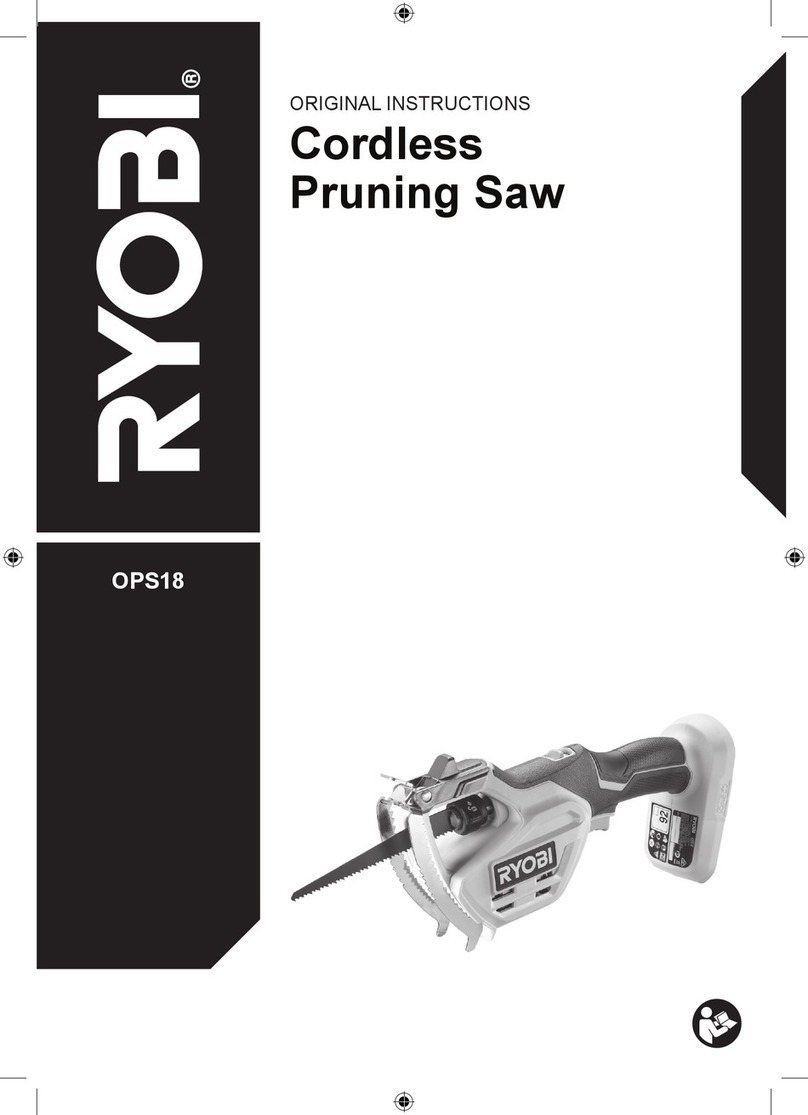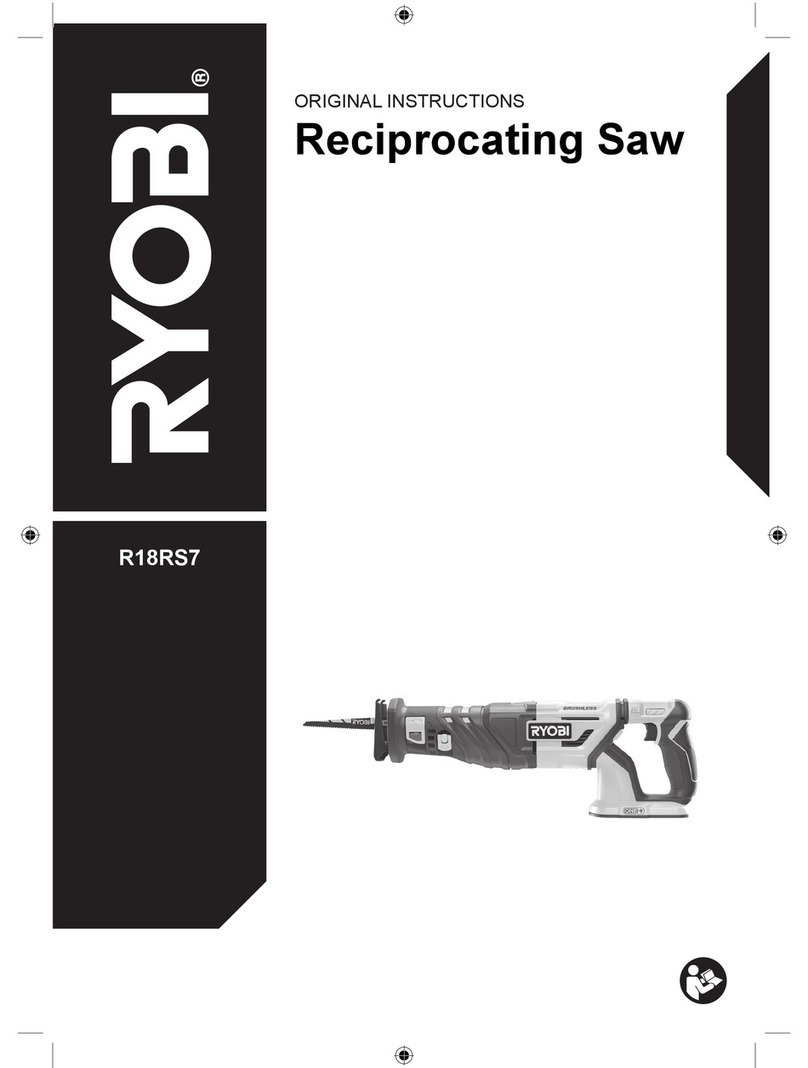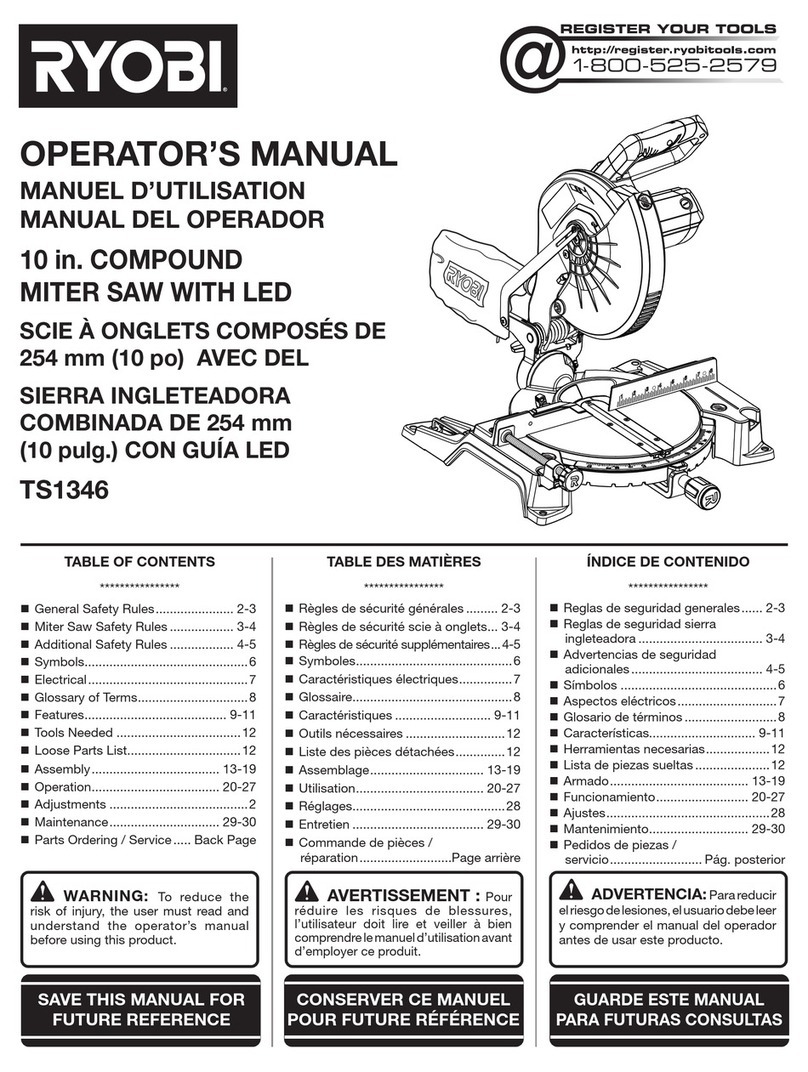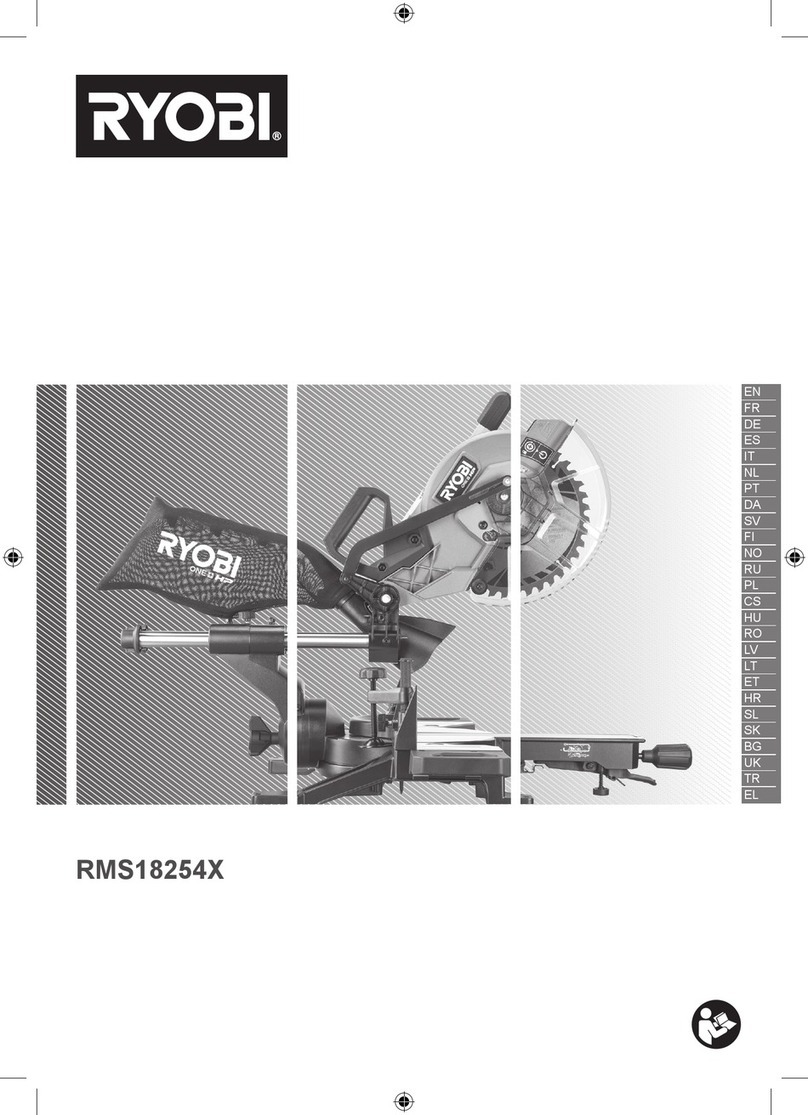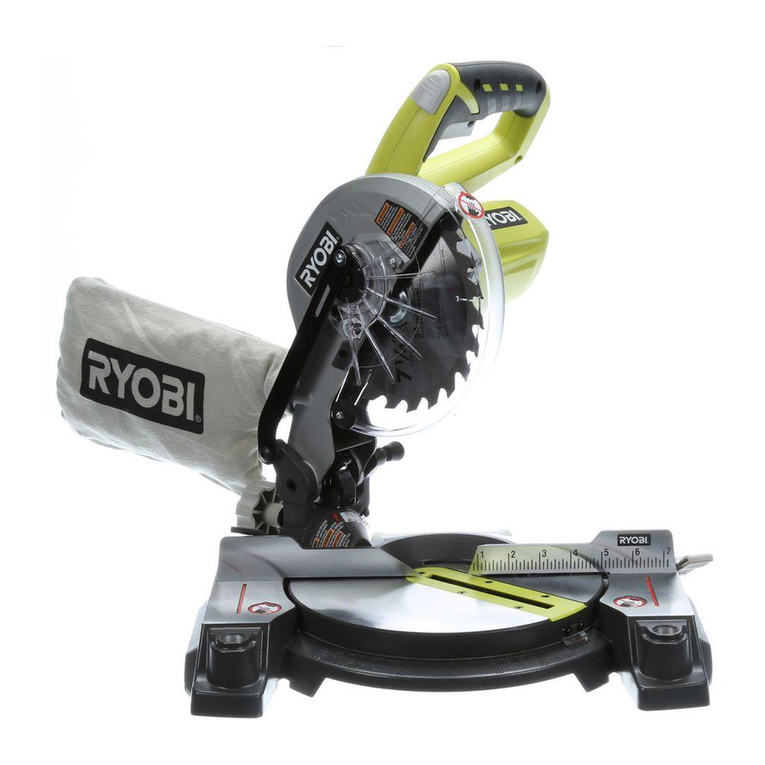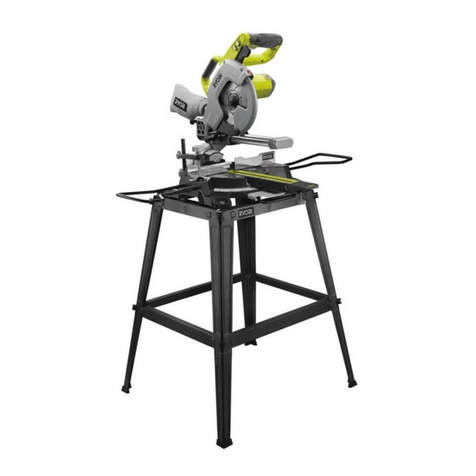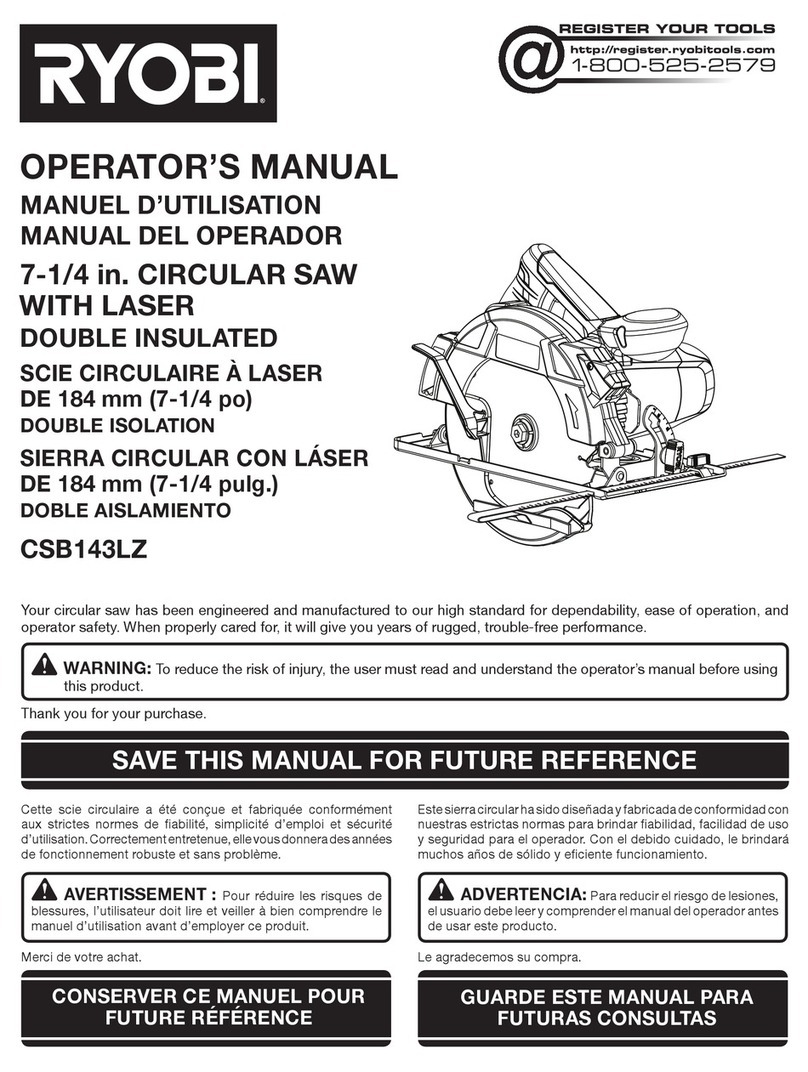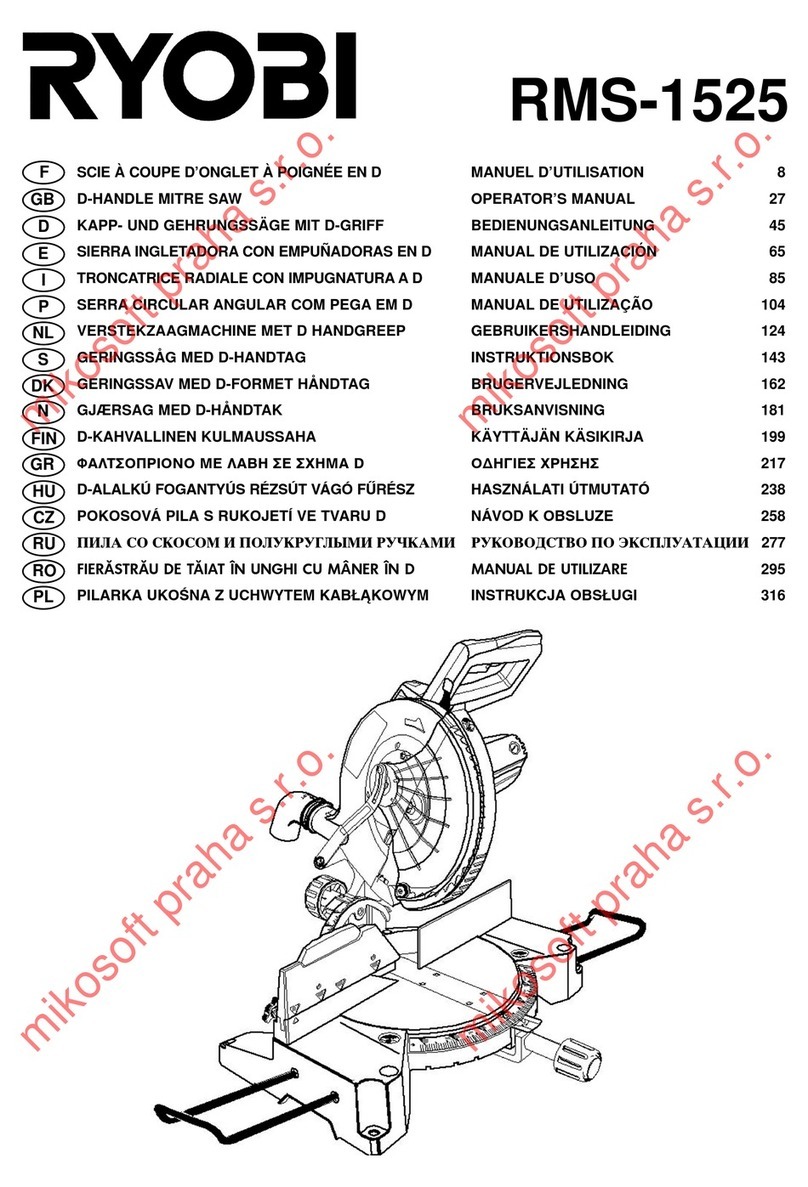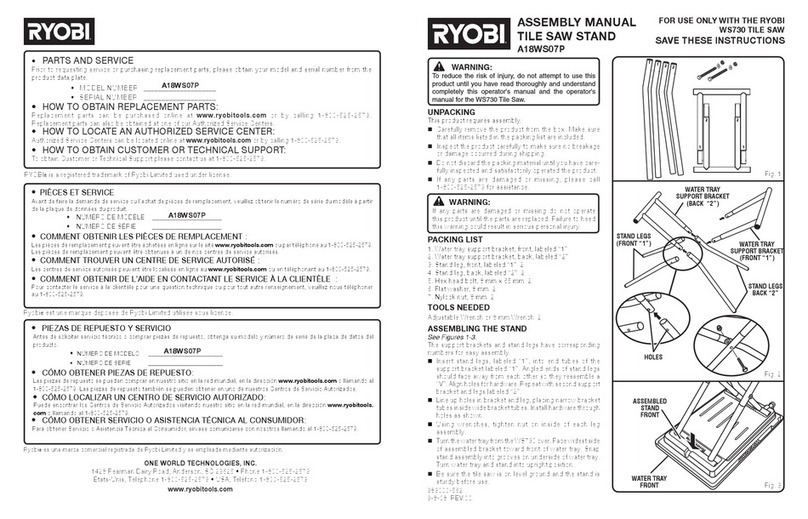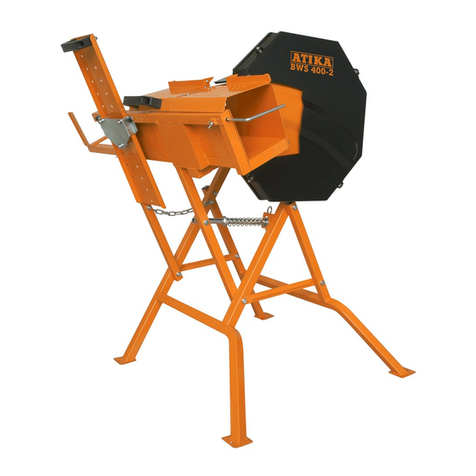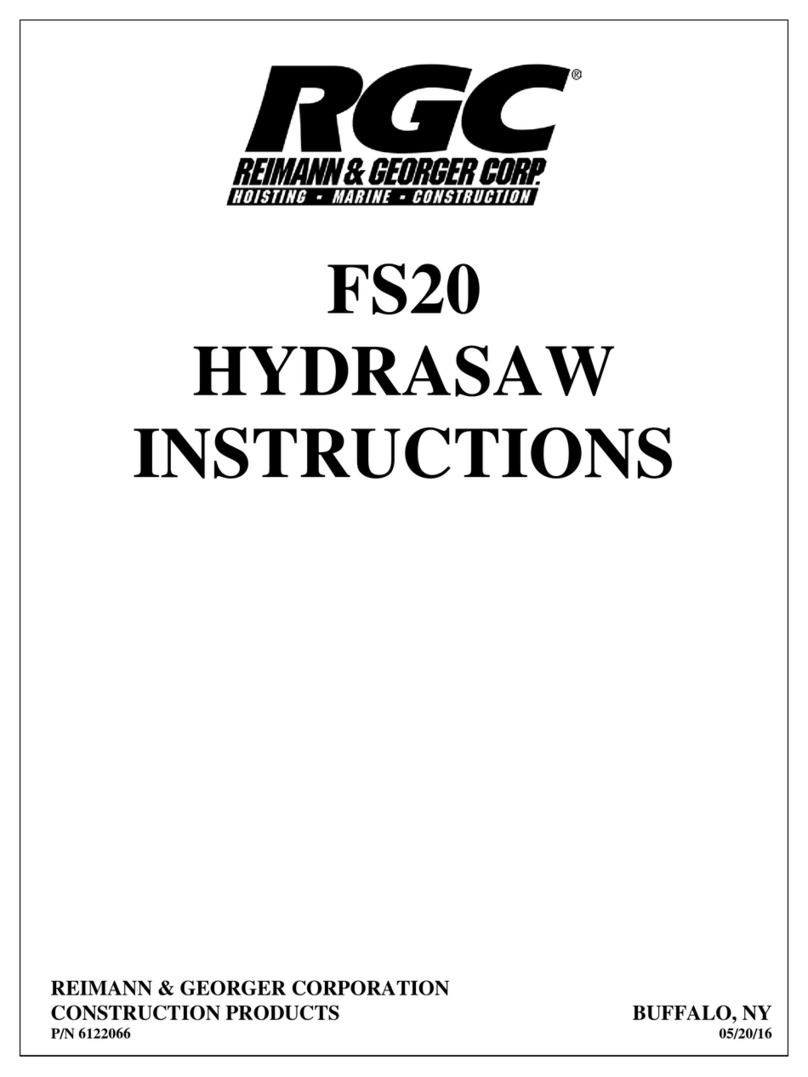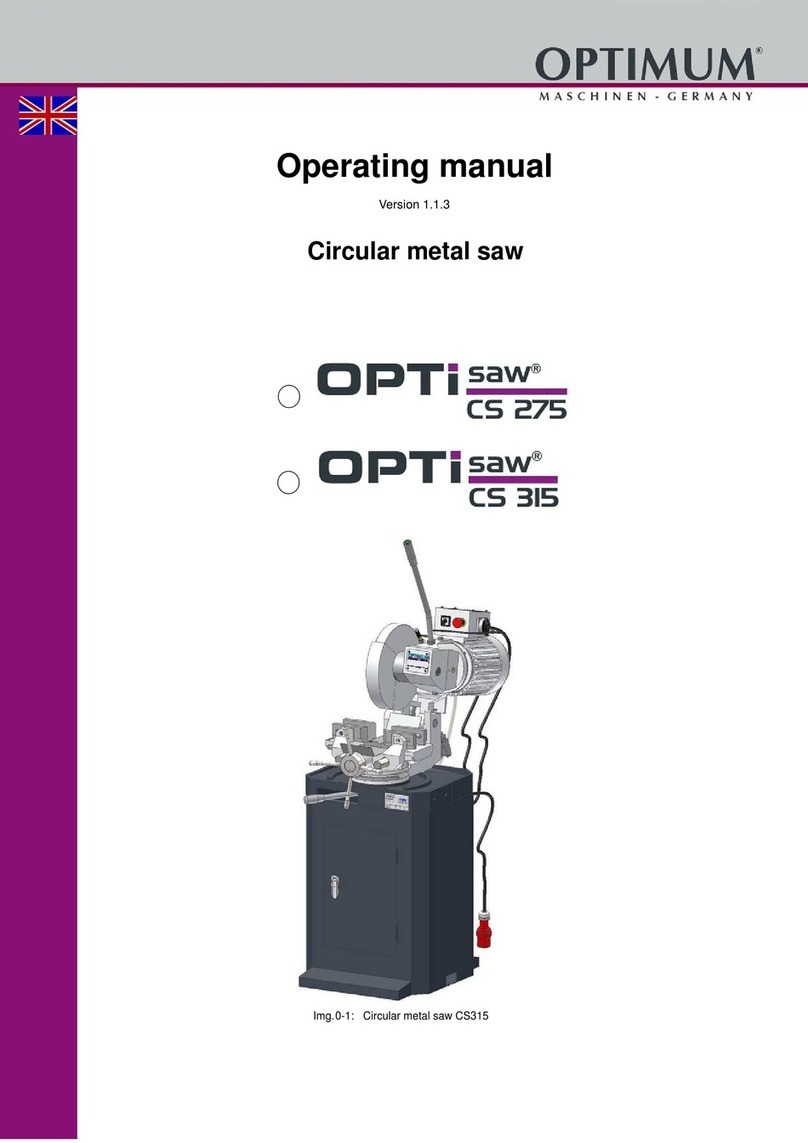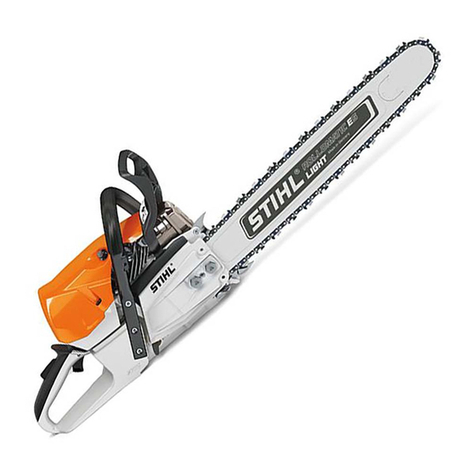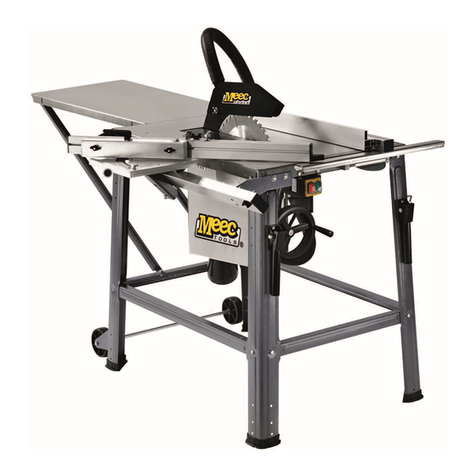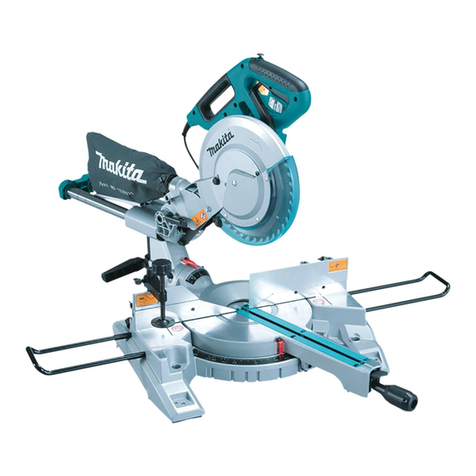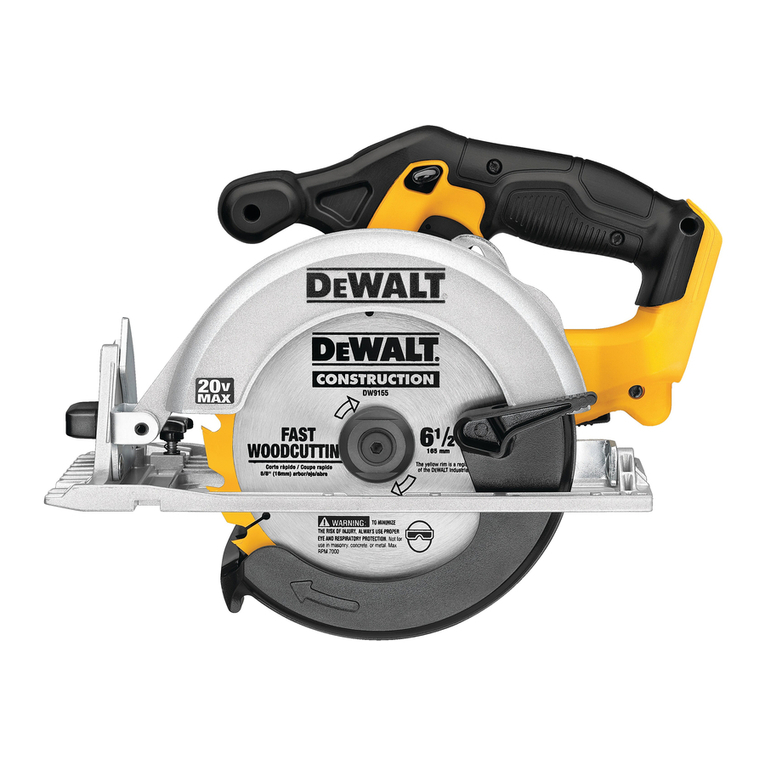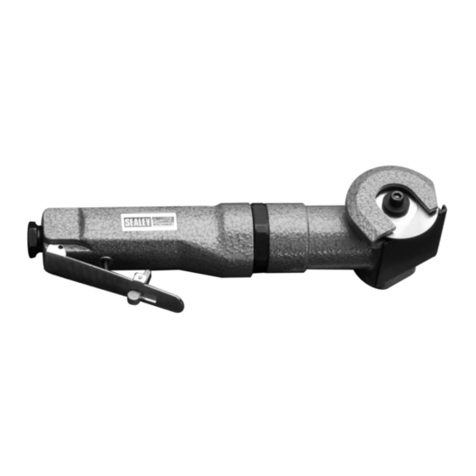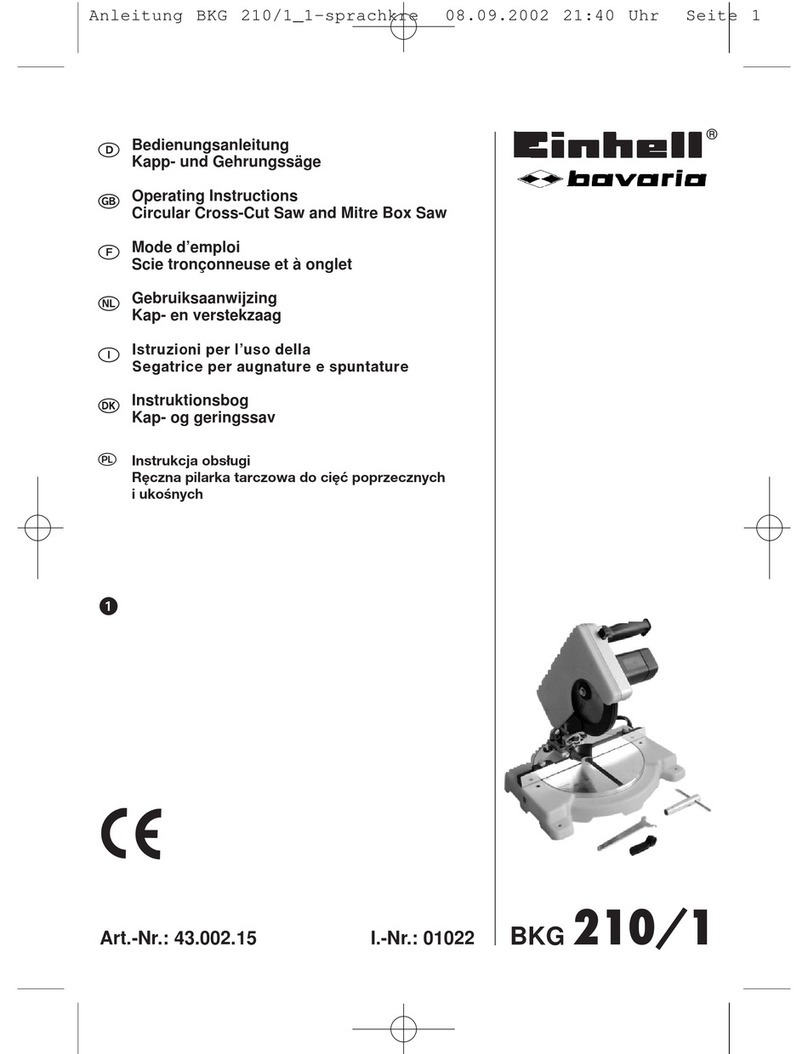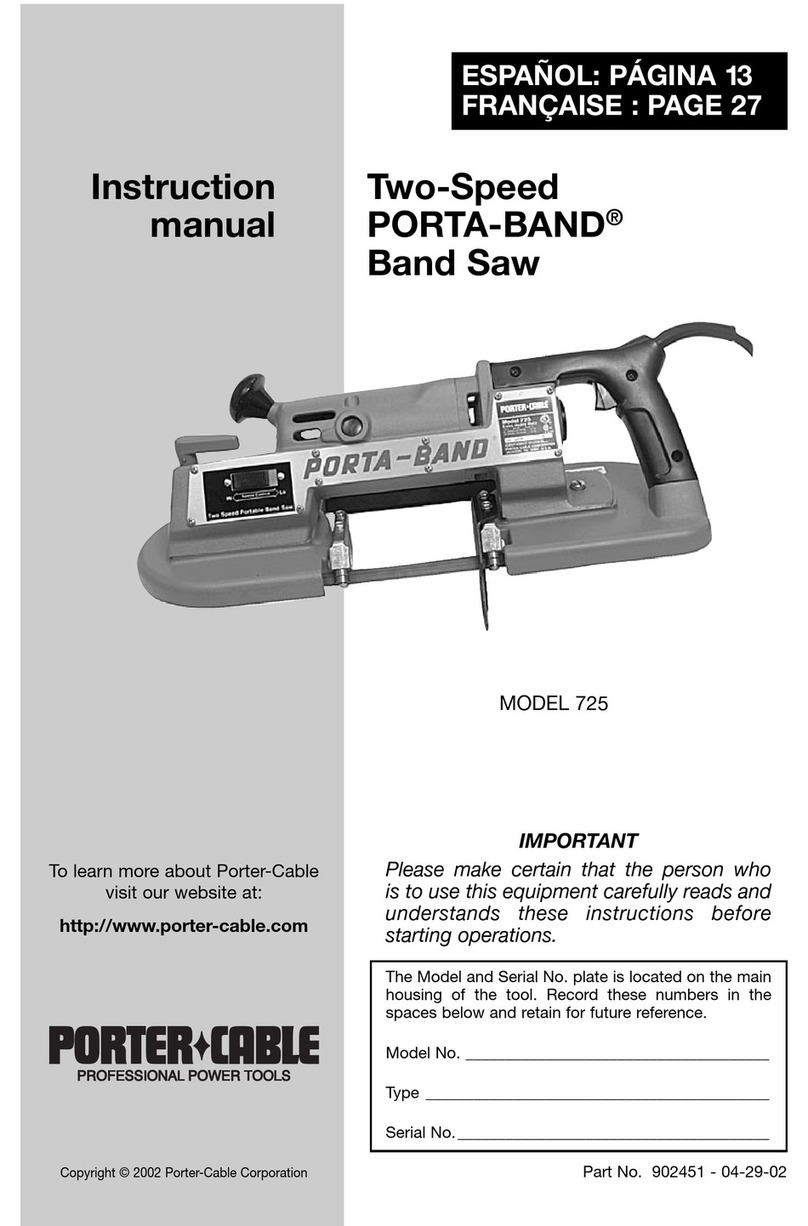
Safety
1
GENERAL SAFETY WARNINGS
WARNING
When using electric tools, basic safety precautions
should always be followed to reduce the risk of re,
electric shock and personal injury. Read all these
instructions before attempting to operate this product
and save these instructions.
■This appliance is not intended for use by persons
(including children) with reduced physical, sensory
or mental capabilities, or lack of experience
and knowledge, unless they have been given
supervision or instruction concerning use of the
appliance by a person responsible for their safety.
Children should be supervised to ensure that they do
not play with the appliance.
■Keep work area clear. Cluttered areas and benches
invite injuries.
■Consider work area environment. Do not expose
tools to rain. Do not use tools in damp or wet locations.
Keep work area well lit. Do not use tools in the presence
of flammable liquids or gases.
■Guard against electric shock. Avoid body contact with
earthed or grounded surfaces (e.g., pipes, radiators,
ranges, refrigerators).
■Keep other persons away. Do not let persons,
especially children, be involved in the work, touch the
tool or the extension cord, and keep them away from
the work area.
■Store idle tools. When not in use, tools should be
stored in a dry locked-up place, out of reach of children.
■Do not force the tool. It will do the job better and safer
at the rate for which it was intended.
■Use the right tool. Do not force small tools to do the
job of a heavy duty tool. Do not use tools for purposes
not intended, for example, do not use circular saws to
cut tree limbs or logs.
■Dress properly. Do not wear loose clothing or
jewellery, they can be caught in moving parts. Non-
skid footwear is recommended when working outdoors.
Wear protective hair covering to contain long hair.
■Use protective equipment. Use safety glasses. Use
face or dust mask if working operations create dust.
■Connect dust extraction equipment. If the tool is
provided for the connection of dust extraction and
collecting equipment, ensure these are connected and
properly used.
■Do not abuse the cord. Never yank the cord to
disconnect it from the socket. Keep the cord away from
heat, oil and sharp edges.
■Secure work. Where possible, use clamps or a vice to
hold the work. It is safer than using your hand.
■Do not overreach. Keep proper footing and balance
at all times.
■Maintain tools with care. Keep cutting tools sharp
and clean for better and safer performance. Follow
instruction for lubricating and changing accessories.
Inspect tool cords periodically and if damaged, have
them repaired by an authorized service facility. Inspect
extension cords periodically and replace if damaged.
Keep handles dry, clean and free from oil and grease.
■Disconnect tools. When not in use, before servicing
and when changing accessories such as blades, bits
and cutters, disconnect tools from the power supply.
■Remove adjusting keys and wrenches. Form the
habit of checking to see that keys and adjusting
wrenches are removed from the tool before turning it
on.
■Avoid unintentional starting. Ensure switch is in “off”
position when plugging in.
■Use outdoor extension leads. When the tool is used
outdoors, use only extension cords intended for outdoor
use and so marked.
■Stay alert. Watch what you are doing, use common
sense and do not operate the tool when you are tired.
■Check damaged parts. Before further use of tool, it
should be carefully checked to determine that it will
operate properly and perform its intended function.
Check for alignment of moving parts, binding of moving
parts, breakage of parts, mounting and any other
conditions that may affect its operation. A guard or
other part that is damaged should be properly repaired
or replaced by an authorized service centre unless
otherwise indicated in this instruction manual. Have
defective switches replaced by an authorized service
centre. Do not use the tool if the switch does not turn
it on and off.
■Warning. The use of any accessory or attachment
other than the one recommended in this instruction
manual may present a risk of personal injury.
■Have your tool repaired by a qualified person. This
electric tool complies with the relevant safety rules.
Repairs should only be carried out by qualified persons
using original spare parts otherwise this may result in
considerable danger to the user.
SPECIAL SAFETY RULES
■Wear ear protectors. Exposure to noise can cause
hearing loss.
■Appliances used at many different locations including
open air must be connected via a current surge
preventing switch.
■Always wear goggles when using the machine. It is
recommended to wear gloves, sturdy non slipping
shoes and apron.
■Always disconnect the plug from the socket before
carrying out any work on the machine.
■Only plug-in when machine is switched off.



